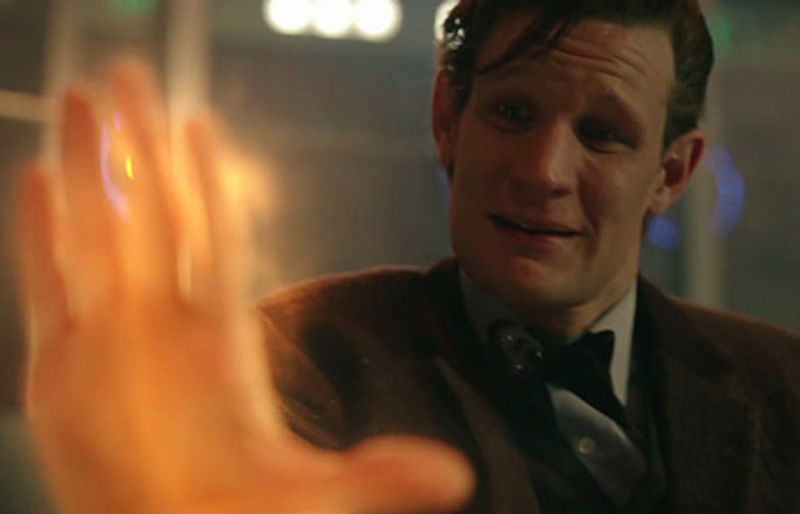I keep thinking about an old Doctor Who episode. The Eleventh Doctor, played by Matt Smith, is about to regenerate into his new form, but before doing so, he gives a short monologue about the cycle of rebirth. “When you think about it,” he says, “we’re all different people all through our lives. And that’s okay. That’s good. You’ve got to keep moving, so long as you remember all the people you used to be.”
I’d rather forget about all the people I used to be. All my past lives are stamped with bad karma, leaving them trapped in an endless cycle of birth, suffering, death, and rebirth, with no sign of nirvana in sight. I’ve been so many different people that it’s impossible to know which one is the real me: a sissy boy, a Nu Metal goth, a Wiccan, a born-again evangelical, a “Nice Guy,” a progressive Christian, a Social Justice Warrior, an atheist podcaster, an alcoholic, a political commentator, and, most recently, a Buddhist. Maybe they’re all still me, or maybe none of them are. Maybe there’s no “real” me.
Anattā, or “non-self,” is one of the biggest misconceptions about Buddhism. It’s the antithesis of the Hindu concept of atman, which is the eternal soul of a person that is connected to the universal spirit Brahman. The Buddha, on the other hand, believed that everything was temporal, so there can be no one essential or eternal thing that can be called “the self.” Instead, the self is made of five material and mental factors—form, feeling, perceptions, mental concepts, and consciousness—which are all subject to change.
It’s not that I don’t exist, but that there’s no one thing that can be defined as the “real” me. The me currently writing this will not be the same me when this gets published. Old cells die and new cells are born within the body every day. Our sense of reality alters with new experiences and information. Identities change when new language is created for previously indescribable feelings. All my past selves are both me and not me simultaneously. Even my current identities—bisexual, nonbinary, neurodivergent, Buddhist, writer—cannot full describe who I am.
Despite the lack of a substantial self, rebirth is still a big part of Buddhism. What exactly rebirth is, however, depends on which Buddhist you ask. Some believe rebirth is like the classic idea of reincarnation: the soul leaves the body at death, and, depending on its karma, enters either a righteous person’s body or a wretched one. Others, like me, see rebirth more like the lifespan of a tree. What starts as an acorn grows into a mighty oak tree, then, when felled, becomes either building material, paper, or ash. In between the two points, the oak tree goes through yearly cycles of death and rebirth: it sheds its leaves in the fall and grows new ones when spring arrives. Death may be the end of consciousness, but for the body it’s a new beginning.
Everything may be impermanent, but the trauma remains. It often comes as a surprise. You’re sitting comfortably with your eyes closed, focusing on your breath, becoming aware of previously ignored bodily sensations, and then, in the midst of the silence, you hear the voice of one of your past lives—the one you’ve tried to forget the most—whisper, “We need to talk.”
The Second Noble truth states that suffering is caused by attachments. We cling to the temporal for fulfillment, only to watch them slip through our grips like water, forcing us to face reality again. The Buddha taught the way to escape suffering is through the Eightfold Path, which includes Right Mindfulness.
Mindfulness, contrary to popular belief, doesn’t guarantee perpetual bliss. Sometimes being in the present means accepting you feel like shit. Psychologist and Buddhist Tara Brach developed the RAIN technique for these moments: recognize what you’re feeling, allow the feeling to exist, investigate why you’re feeling that way, and nurture yourself with self-compassion.
All my past attempts to escape suffering through temporary highs made the suffering worse. As soon as the booze wore off and the rush of dopamine from slicing my skin faded, the voices of my past lives were still there. What’s left to do now is to step into the shadow realm, confront my past lives, and say, “Okay, let’s talk.”

